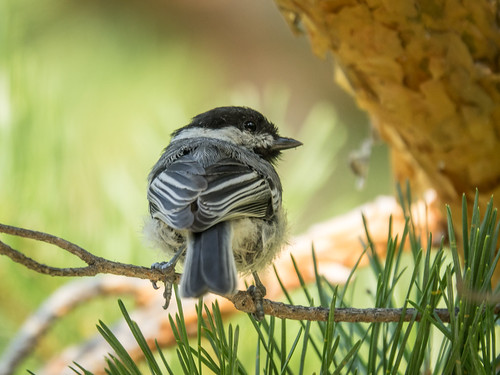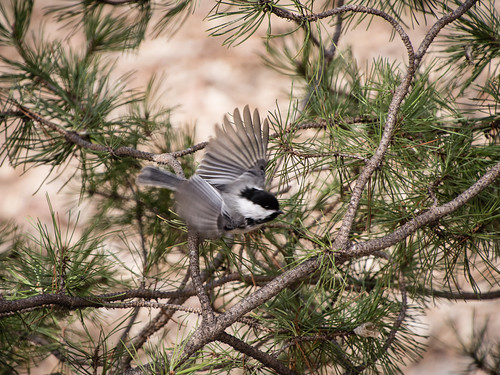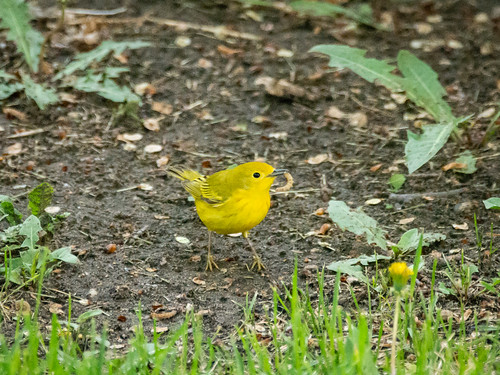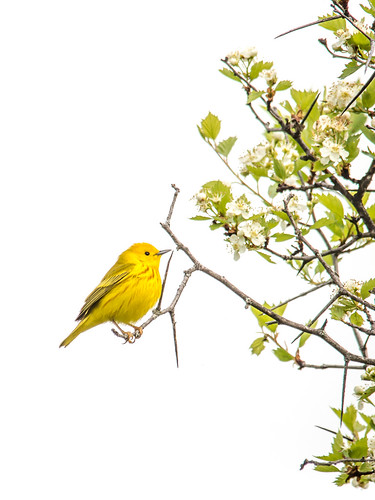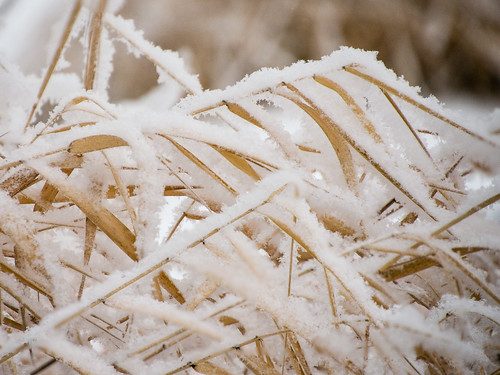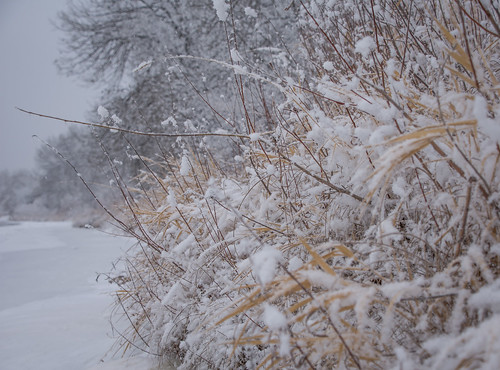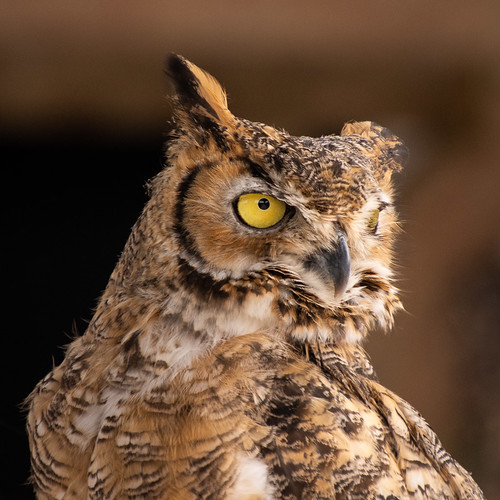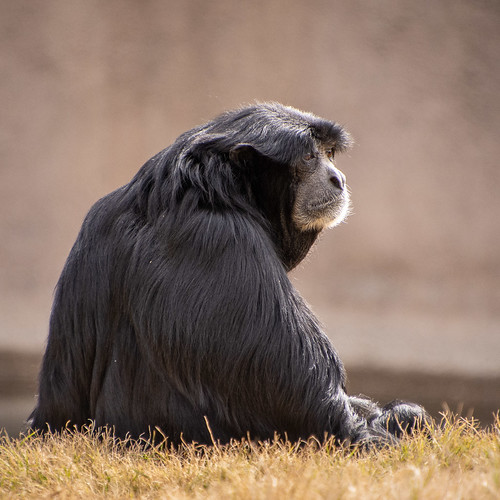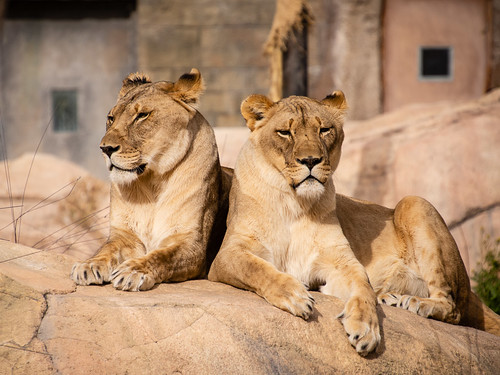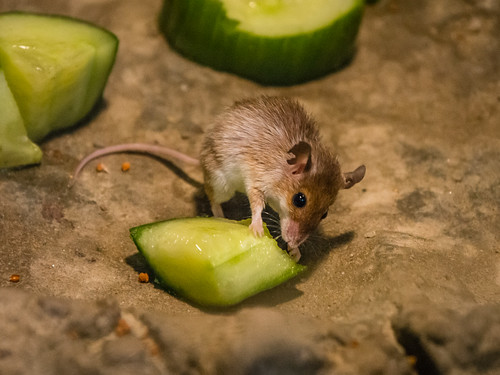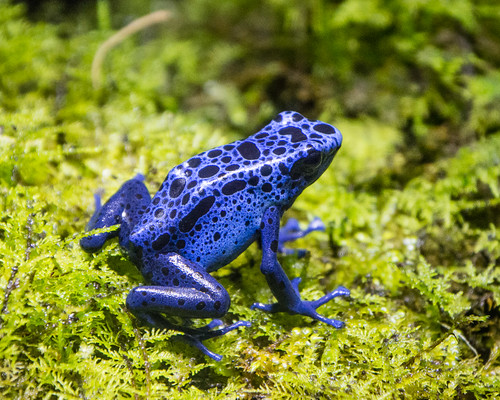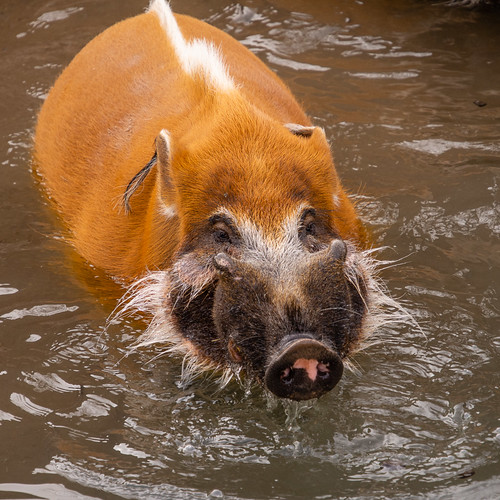Tuesday, 29 January 2019
EcoSask News, January 29, 2019
Upcoming Events
Pesticides in the Prairie Pothole Region, Feb. 1 (Saskatoon)
Egina Malaj will discuss the ecological assessment of pesticides in the Prairie Pothole Region at 3:30 pm, Feb. 1, as part of the WildEcol seminar series at the U of S.
AB/SK Renewable Energy Summit, Feb. 4-5 (Calgary)
Find out about renewable energy project and investment opportunities at the AB/SK Renewable Energy Summit, Feb. 4-5, in Calgary.
Retro-commissioning, Feb. 6 (Saskatoon)
Ken Coutu will discuss retro-commissioning at the Feb. 6 breakfast meeting of the Energy Management Task Force.
Project Wet, Feb. 8 (Saskatoon)
SaskOutdoors is hosting a Project Wet workshop on Feb. 8 at the University of Saskatchewan.
Looking Ahead
Nature Play: Winter Edition, Feb. 12 (Saskatoon)
Early years educators are invited to discover ways to embed outdoor learning experiences in their winter program from 1-3 pm, Feb. 12.
Cold Weather First Aid, Feb. 16 (Saskatoon)
SaskOutdoors and Back40 Wilderness First Aid Training are offering anyone who plays outside a short refresher in winter first aid skills for hypothermia and minor injuries from 1:30-4 pm, Feb. 16.
True Nature Writing, Feb. 28-Mar. 21 (online)
SaskOutdoors is partnering with writer Joyce Belcher to offer a 4-session, online class in nature writing from Feb. 28-Mar. 21.
Building Operator Training, Mar. 1 (Regina), Mar. 29 (Saskatoon)
Do you operate a building? Would you like to save money? The Saskatchewan Environmental Society is offering a building operator training course in energy conservation on Mar. 1 in Regina and Mar. 29 in Saskatoon.
SWRC Waste Reforum, Apr. 10-12 (Saskatoon)
The Saskatchewan Waste Reduction Council will be hosting their annual conference in Saskatoon from Apr. 10-12. The theme is Home Grown: Local Problems. Local Solutions. There will be a pre-conference workshop on Applying Design Thinking to Recycling Right.
A full list of upcoming events can be found on the EcoFriendly Sask Calendar
In the News
Saskatchewan's methane regulations ignore more than 40% of the province's methane emissions, contain loopholes, and lack strong measurement and reporting standards.
Coyotes and foxes help fight Lyme disease by killing rodents.
Starting in 2020, all new homes in California will have rooftop solar.
Offering everything from cement mixers to air compressors as well as classes in how to use them, the West Philly Tool Library makes home repairs and maintenance more affordable.
Vancouver is initiating a one-year mentorship program to assist young women to became climate leaders in their field.
"If we're going to fly, it should be for truly extraordinary and important reasons."
EcoSask News is a weekly round-up of local news and events. Email us if you have items you would like us to include.
You can follow EcoFriendly Sask by liking us on Facebook, following us on Twitter, or by email (top right corner).
Labels:
Agriculture,
Buildings,
Construction,
Education,
First Aid,
Government,
Renewable Energy,
Saskatchewan,
Transportation,
Travel,
Waste,
Women,
Writing
Thursday, 24 January 2019
Transition Town Totnes
“Strengthening the local economy, reducing environmental impact & building resilience"
Totnes is a small town in the southwest of England that has become known world-wide as the birthplace of the Transition movement. The Transition Network is a grassroots “movement of communities coming together to reimagine and rebuild our world.” Community groups crowdsource solutions to local problems and support each other’s efforts. The movement is now active in over 50 countries around the world.
Transition Town Totnes (TTT) continues to play an active role in its community and its small staff serve as an administrative hub for a wide variety of independent local projects. TTT’s goal is “to strengthen the local economy, reduce our environmental impact, and build our resilience for a future with less cheap energy and a changing climate.”
Projects
A great number of TTT's activities revolve around food. Totnes was one of the first to establish an Incredible Edible project planting vegetables, fruits, herbs, and edible flowers in public and unused spaces around the town. They also planted fruit and nut trees, inviting community members to become tree guardians and care for the trees. Totnes 10 strives to connect local shoppers with local food through a local food map, farmers’ stories, and a food festival. Grown in Totnes produced locally grown grains and pulses. The project is now being run by a group of organizations with a mill selling flour from locally grown grain to a bakery and the general public.
The Open Eco Homes Weekend is an opportunity to visit homes that are reducing their environmental impact and utilizing renewable energy. Owners, and often builders and suppliers, are on hand to discuss how they undertook their project, the challenges they encountered, and their solutions. Running in parallel to the Open Eco Homes Weekend is the Eco and Community Homes Fair where the public can meet “suppliers of eco-friendly goods and services, home energy installers, eco-builders, architects and others, learn about how to make your home more energy efficient and eco-friendly, and find out about community led housing solutions.”
After many years and much hard work, Transition Homes will be constructing 27 eco homes. Seventy percent of the homes will be affordable rental and shared ownership for local people.
The TTT Film Festival is a biannual event showcasing “films from around the world providing hope, inspiration and imaginative solutions to the challenges of our time.” Films shown in 2018 included The Worm is Turning: Ecological Farming: The Real Revolution, Human Flow (about human migration), and Albatross (about ocean plastic pollution). There is also a monthly film club.
The Local Entrepreneur Forum began in 2012/13 and has been very successful. Would-be entrepreneurs present their projects and local people are invited to invest in them. Support comes in many, many forms: providing land, marketing expertise, a promise to buy the product. A local volunteer says, “It’s a fantastic feeling of people coming together and helping and supporting each other.”
The Skillshare project encourages individuals to share their knowledge and skills with others. Past projects have included a rammed earth project, willow weaving, and making lanterns.
Celebrations and Challenges
Part of Transition Town Totnes’ strength lies in inviting people to work on issues they are passionate about, rather than trying to channel volunteers into established projects. A local volunteer explains, “As I understand it, the aim of TTT was not to do things for people but to bring them together, to encourage, enable and support people to get involved in things about which they were passionate, and that has been its success.” Some of the projects go on to become autonomous, while others remain under the TTT umbrella. A small part-time staff provides some support, but it is limited due to the large number of projects.
Volunteers receive emotional support from Inner Transition, which looks at the inner changes that are needed to support the external. They offer mentoring as well as a weekly meditation group and share ways to maintain hope and work on healing the divisions within community.
For More Info:
Essential Guide to Transition
Transition Town Bro Gwaun: Reducing Carbon Emissions and Building Community
Labels:
Agriculture,
Communities,
Entrepreneur,
Food,
Housing,
Sharing Economy,
Transition,
United Kingdom,
Volunteers
Tuesday, 22 January 2019
EcoSask News, January 22, 2019
Upcoming Events
Bike to Work Day, Jan. 24 (Saskatoon)
Enjoy some fun on your way to work on Bike to Work Day, Jan. 24, in Saskatoon.
24 Hours in the Desert, Jan. 25 (Saskatoon)
Meaghan Hackinen will share what it takes to successfully complete a 24-hour bike race from 6:30-8:30 pm, Jan. 25.
 |
| SCYAP Bike Art Show (S. Ballard-McKinlay) |
A Comfortable Nest, Jan. 25 (Saskatoon)
Join Lyndon Penner at Wild Birds Unlimited at 7 pm, Jan. 25, for a discussion on what birds need to build a nest.
Gone Wild for Wildlife, Jan. 26 (Saskatoon)
Meet hawks, bats, and snakes; dissect an owl pellet; make a pine cone bird feeder; and enjoy science experiments at Gone Wild for Wildlife from 10 am-5 pm, Jan. 26.
This Changes Everything, Jan. 27 (Regina)
This Changes Everything, a film about climate change vs. capitalism, will be shown at 6:30 pm, Jan. 27, at the Regina Public Library.
Walking Saskatoon, Jan. 27 (Saskatoon)
Everyone is invited to attend Walking Saskatoon’s meeting from 1-2:30 pm, Jan. 27.
Renewable Energy, Jan. 28 (Prince Albert)
Join RPIC to discuss renewable energy’s role in climate change and social justice at 6:30 pm, Jan. 28.
Loggerhead Shrikes, Jan. 28 (webinar)
PCAP-SK is hosting a webinar with Amy Chabot, Shrike Watch Canada, about loggerhead shrikes at noon, Jan. 28.
Birds of Saskatchewan Book Launch, Jan. 29 (Saskatoon)
Nature Saskatchewan will be launching their new book, Birds of Saskatchewan, at McNally Robinson Booksellers at 7 pm, Jan. 29.
Come and Grow, Jan. 31 (Saskatoon)
City of Saskatoon is holding an open house from 3-8 pm, Jan. 31, to discuss its plans for growth. Included in the discussion is the University Sector, which overlaps with the Northwest Swale.
Project Wild, Feb. 1 (Saskatoon)
SaskOutdoors is hosting a Project Wild workshop for educators at the University of Saskatchewan on Feb. 1.
Learn to Kiteski, Feb. 1-3 (Regina)
SaskOutdoors is offering an opportunity to learn to kiteski from Feb. 1-3 in Regina.
A full list of upcoming events can be found on the EcoFriendly Sask Calendar
Citizen Science at the Swale (Saskatoon)
Contribute your observations of the Northeast Swale’s flora and fauna to iNaturalist’s Meewasin Northeast Swale project. You’ll be helping to establish an inventory for long-term monitoring.
In the News
“Issues like climate change require rapid transformations in both conservation and food production practices. Rather than perpetuating polarization, bold leadership should work toward consensus among groups. This must start with recognizing that food production and conservation are not opposing ends of the spectrum.”
SOS Elms December 2018 newsletter discusses urban forest challenges, including infill development and root protection.
Greystone Kids, a newly launched children’s book program, will be launching 6 new books this fall themes of nature and the environment. And, best of all, one of them - Hello, Crow! - is by Candace Savage.
Healthcare creates 10% of US greenhouse gas emissions - it needs to be part of the solution.
Six conservation movies for the whole family.
Naturalist poet Mary Oliver reminded us to be devoted to life:
just to be alive
on this fresh morning
in the broken world …"
EcoSask News is a weekly round-up of local news and events. Email us if you have items you would like us to include.
You can follow EcoFriendly Sask by liking us on Facebook, following us on Twitter, or by email (top right corner).
Labels:
Birds,
Books,
Children,
Citizen Science,
Cycling,
Education,
Films,
Health,
Outdoors,
Renewable Energy,
Urban Planning,
Walking
Friday, 18 January 2019
Win a Free Family Pass to Gone Wild for Wildlife 2019
Meet hawks, bats, and snakes; dissect an owl pellet; make a pine cone bird feeder; and enjoy science experiments, juggling, and face painting at Gone Wild for Wildlife from 10 am-5 pm, Saturday, January 26, at the Saskatoon German Cultural Centre.
EcoFriendly Sask is one of the event’s sponsors and we’re giving away two FREE family passes. To have your family entered in the draw, post a comment or send us an email telling us about your favorite local wild animal.
The draw will close at midnight on Saturday, January 19, and winners will be notified on Sunday. Good luck!
Tuesday, 15 January 2019
EcoSask News, January 15, 2019
Upcoming Events
Bike Regina AGM, Jan. 16 (Regina)
Bike Regina is holding its annual general meeting at 6:30 pm, Jan. 16.
Prairie Resilience, Jan. 17 (Regina)
Learn more about the provincial government’s climate change strategy at a lunch and learn on Jan. 17 at Innovation Place Regina.
Ecology & Conservation of Whooping Cranes, Jan. 17 (Saskatoon)
Join the Saskatoon Nature Society at 7:30 pm, Jan. 17, for a talk by Mark Bidwell on the ecology and conservation of whooping cranes. The Society is meeting in a new location – Room 1130, Health Sciences E-Wing, University of Saskatchewan.
Repair Café, Jan. 19 (Prince Albert)
Share and learn skills to repair things at Repair Café Prince Albert from 1-4 pm, Jan. 19.
Ice Cycle & Bike Art Show, Jan. 19 (Saskatoon)
Join Saskatoon Cycles for a group ride and a repurposed bicycle art exhibit by SCYAP from 6:45-8:45 pm, Jan. 19.
Breeding Bird Atlas, Jan. 21 (Regina)
Kiel Drake will provide an update on the Saskatchewan Breeding Bird Atlas project from 7:30-9:30 pm, at the Jan. 21 meeting of Nature Regina.
Owl about Owls, Jan. 22 (Moose Jaw)
Join Moose Jaw Nature Society at 6:30 pm, Jan. 22, for a talk about owls in Saskatchewan.
Hidden Dangers of Agricultural Pesticides, Jan. 22 (Saskatoon)
Dr. Christy Morrissey will share the latest research on agricultural pesticides at Café Scientifique, 7:30 pm, Jan. 22.
Toxic Trespass, Jan. 23 (Regina)
The film Toxic Trespass, an investigation into toxic chemicals in industrial centres such as Windsor and Sarnia, will be shown in Regina at 6:30 pm, Jan. 23.
Secrets of Ruby-throated Hummingbirds, Jan. 24 (Regina)
Jared Clarke will uncover the secrets of ruby-throated hummingbirds at Friends of Wascana Marsh’s annual general meeting on Jan. 24.
Passive House Design & Construction, Jan. 24-27 (Saskatoon)
Passive House Canada is offering a 4-day course on passive house design and construction in Saskatoon from Jan. 24-27.
Apathy into Action, Jan. 25 (Regina)
Winning the Renewable Regina campaign will be one of the topics discussed on Jan. 25 at the Apathy into Action conference.
Looking Ahead
Snowlandia, Feb. 19-22 (Saskatoon)
Wildernook Fresh Air Learning invites young women ages 10-11 to participate in 4 days of outdoor activities from Feb. 19-22.
Wascana Junior Naturalist, Mar-May (Regina)
Young people ages 9-13 are invited to participate in Wascana Junior Naturalists from 6-8 pm, Mar. 5, 12, 26; April 2, 16, 30; and May 7. Activities will include prairie flora, soil ecology, and outdoor animal CSI.
A full list of upcoming events can be found on the EcoFriendly Sask Calendar
In the News
A recent study found that only 41% of existing “natural” areas in the US are sufficiently connected to enable species to follow the environmental conditions they need.
Soil supports 98% of biodiversity, 99% of human food, filters 100% of rainfall for drinking water, and stores more active carbon than air, forest, and seas combined.
“An end to growth is inevitable. . . . If we plan for and manage it, we could well wind up with greater well-being."
Four corporations control over 60% of global seed sales.
Cities not individuals should be responsible for clearing snow from sidewalks.
EcoSask News is a weekly round-up of local news and events. Email us if you have items you would like us to include.
You can follow EcoFriendly Sask by liking us on Facebook, following us on Twitter, or by email (top right corner).
Labels:
Agriculture,
Birds,
Children,
Cycling,
Economy,
Government,
Industry,
Moose Jaw,
Passive House,
Pedestrians,
Prince Albert,
Regina,
Repair,
Saskatoon,
Seeds,
Soil,
Urban,
Urban Planning,
Waste,
Winter
Tuesday, 8 January 2019
EcoSask News, January 8, 2019
Happy New Year! There's lots to look forward to.
Upcoming Events
Rob Dumont Principles in Action, Jan. 9 (Saskatoon)
Dave Palibroda will discuss putting Rob Dumont’s principles into action at the Jan. 9 breakfast meeting of EMTF Saskatchewan.
Carbonless Concert, Jan. 10 (Saskatoon)
Enjoy a free carbonless concert at Louis’ Loft on campus from 6:30-9:30 pm, Jan. 10.
Regina Beach Enviro Collective, Jan. 12 (Regina Beach)
The Regina Beach Enviro Collective is meeting at 3 pm, Jan. 12.
Soil & Permaculture, Jan. 12 (Regina)
Join Permaculture Regina at 1:30 pm, Jan. 12, at the Cathedral Neighbourhood Centre for a brief AGM and to share knowledge about soil and upcoming permaculture projects.
Year-round Composting, Jan. 12 (Regina)
Learn how to compost year-round from 2-3 pm, Jan. 12, at the Central Library.
Zero Waste 101, Jan. 15 (Saskatoon)
Meg Dorwart will share how she’s lived waste-free for the past 2 years from 7-8:30 pm, Jan. 15, as part of the Sustainable Speaker Series organized by the Saskatoon Public Library and the Saskatchewan Environmental Society.
Smarter Science, Better Buildings, Jan. 15 - Feb. 15 (Saskatoon)
Grade 7 students and the general public are invited to view the Smarter Science, Better Buildings exhibit at Saskatoon’s Western Development Museum, Jan. 15-Feb. 15.
Saskatoon Nature Society Field Trips
Jan. 13, 9-11 am – Chorney acreage bird feeders
Jan. 20, 2:15-3:15 pm – Visit to Living Sky Wildlife Rehabilitation facility
Jan. 27, 9 am-4 pm – Snowy Owl census
Everyone is welcome. Check the Saskatoon Nature Society’s website for full details and updated information.
A full list of upcoming events can be found on the EcoFriendly Sask Calendar
In the News
Changes are afoot at the Saskatoon Forestry Farm Park and Zoo. But is the City paying attention to the important issues of animal welfare, environmental conservation, and education?
Michelle Brass is offering climate change workshops to Saskatchewan First Nations to discuss and develop solutions rooted in Indigenous values.
City Councillor Andrew Stevens discusses the evolution of Renewable Regina: “Even in the heartland of oil and gas there is excitement about the potential of increasing our reliance on renewable energy and in moving away from fossil fuels as a source of electricity.”
Oil Fall - how clean energy, electric cars, and grid technology will profoundly impact the oil market [book review]
Spain is making sure displaced workers are taken care of when they shut 26 coal mines.
Walkable cities are good for the economy - and for people!
EcoSask News is a weekly round-up of local news and events. Email us if you have items you would like us to include.
You can follow EcoFriendly Sask by liking us on Facebook, following us on Twitter, or by email (top right corner).
Labels:
Advocacy,
Birds,
Coal,
Composting,
First Nations,
Housing,
Music,
Permaculture,
Regina,
Walking,
Waste,
Zoo
Sunday, 6 January 2019
Zoos in the 21st Century
Zoos tend to generate opposing points of view. Some people wholeheartedly endorse them as a means of promoting interaction between humans and other animals, educating the public about wild animals, and assisting with species conservation. Other people oppose keeping animals in captivity indefinitely in order to entertain humans.
The City of Saskatoon has developed a Master Plan outlining their ideas for the future of the Saskatoon Forestry Farm Park and Zoo. The Plan pays a lot of attention to services (i.e. parking) and a shared vision (botanical, zoological, heritage, and recreation), but there is little information about how they intend to develop a world-class zoo in the 21st century.
Zoos are very popular and they generate a lot of money so they are unlikely to cease to exist any time soon. But there are ways in which zoos could be improved to promote animal welfare, environmental education, and human/animal interaction.
Animal Welfare
“Zoos that support efforts to improve sub-standard zoos, zoos that take on non-breeding or old animals (often because no one else will), zoos that join forces with animal welfare groups to rescue animals, zoos that refuse to hold certain species and zoos that speak out against unethical and immoral welfare practices – these compassionate zoos should be the future.”
Zoos need to focus on individual animal welfare. Don’t break up friends and families by moving them from zoo to zoo. Don’t treat wildlife as breeding machines, expected to breed on demand. Stop unnecessary killing of animals simply because they are surplus to requirements.
Some animals do not do well in captivity (the most intelligent animals or large ones that need space to roam) and don’t belong in a zoo.
By working hand in hand with wildlife rehabilitation organizations, zoos can serve as a refuge for rehabilitated wildlife. Whether it’s an eagle that can no longer fly or an orphaned bear cub that cannot be returned to the wild, these animals can be a wonderful introduction to the amazing diversity of local wildlife.
More and more, zoo visitors can observe wildlife in large, naturalistic enclosures. But, “as night falls and the facilities need to be cleaned, the animals are commonly led into small concrete holding areas.” This can lead to negative changes in behaviour and should be stopped.
Pro-Environmental Behaviour
“The world-class zoo or aquarium of the 21st century will not consider itself to have an effective education programme simply because it displays graphics for visitors. . . . In order to be outstanding, conservation education programmes must inspire people to change their attitudes and behaviour to benefit wildlife and their habitats.”
Zoos tend to house charismatic animals with big eyes, cuddly fur, and high profiles. Less attractive animals are under-represented. Instead, zoos could shift to smaller animals, such as reptiles and amphibians. “Exotic insects like the Madagascar hissing cockroach could teach visitors how dynamic ecologies work and still let young people encounter animal life up close. An emphasis on endangered amphibians like the Panamanian golden frog would allow for a wide-ranging set of exhibits on the vulnerability of delicate ecosystems around the world.”
Graphic displays should move beyond informing visitors of biological facts or the loss of biodiversity to actively promoting pro-environmental behaviour. This could include linking problems with human actions and providing comparisons between human and non-human behaviour.
Zoos could skip the Noah’s Ark approach by housing a larger population of a smaller number of species from a specific geographical area. Grouping animals from a specific environment to show how they interact would emphasize the importance of conserving habitats rather than individual species.
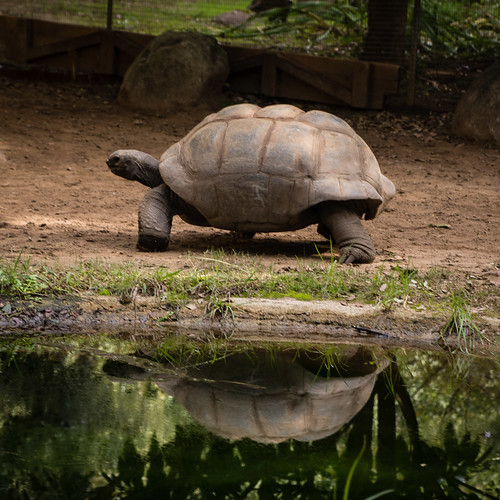 |
| Turtle Sanctuary, Ajaccio, Corsica |
Enhanced Human/Animal Interaction
“Zoos should move forward in developing a social movement for conservation. They can effectively drive social innovation in the relationship between humans and animals by bringing new voices to conservation and connecting humans to the ultimate responsibility we have to care for our planet.”
Zoos are often the only place where urban children encounter living animals. As such, it’s important to demonstrate healthy animal behaviours and avoid the mixed messages conveyed by petting zoos and horse-drawn carriages.
Visitor behaviour can have an effect on the wildlife. “Noisy visitors and larger groups will have a larger impact than solitary quiet visitors. Visitors that offer food, eat and smoke around enclosures will also have a negative impact on animal behaviour.” Visual barriers and sound-absorbing materials are two of the ways that enclosures can be designed to protect the animals.
Further Information:
Can a More Compassionate Zoo Improve Animal Welfare
Characteristics of a World-Class Zoo or Aquarium in the 21st Century
Different Views on How to Make Zoos More Resident-Friendly
Expert Offers Suggestions on Improving Zoos and Aquariums
Fostering a New Relationship Between Humans and Nature
How to Make Zoos Happier Places
How to Save Zoos? Focus on Education, Conservation
Zoos Aren’t Victorian-era Throwbacks: They’re Important in Saving Species
Tuesday, 1 January 2019
New Year's Day Special
“Keep some room in your heart for the unimaginable.” Mary Oliver
What if . . .
Your home was also an urban farm?
Your bike commute powered your neighbourhood?
You planted 5-10-100 trees a year for the rest of your life?
Your city was lit by glowing trees or squid-powered light bulbs?
There were more bees than humans in your city?
We heated buildings with heat pumps in our parks?
“People say nothing is impossible, but I do nothing every day.” Winnie the Pooh, A. A. Milne
You can follow EcoFriendly Sask by liking us on Facebook, following us on Twitter, or by email (top right corner).
A full list of upcoming events can be found on the EcoFriendly Sask Calendar
Subscribe to:
Posts (Atom)
